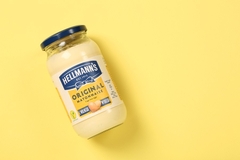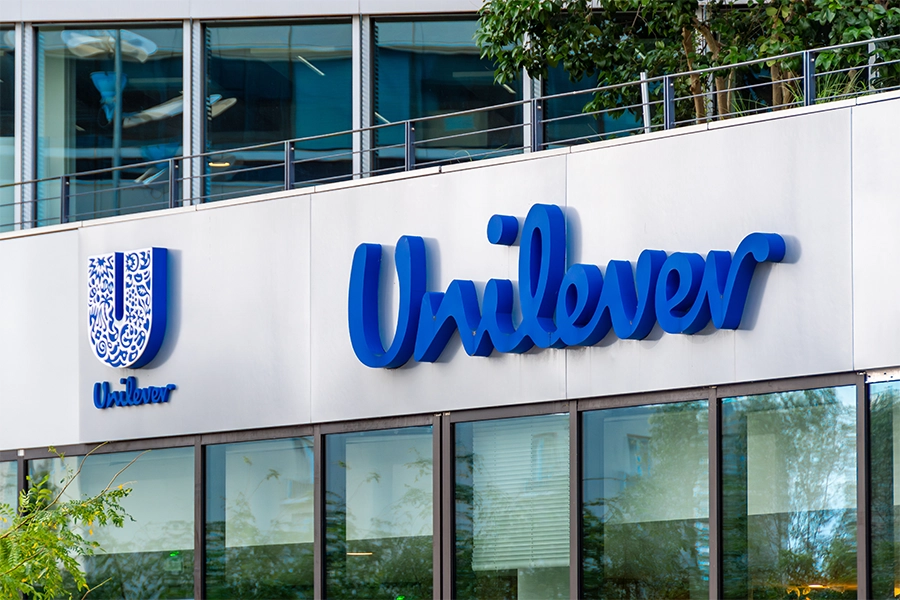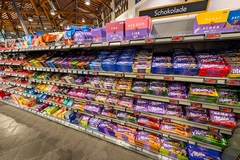
- Industry news
Industry news
- Category news
Category news
- Reports
- Key trends
- Multimedia
- Journal
- Events
- Suppliers
- Home
- Industry news
Industry news
- Category news
Category news
- Reports
- Key trends
- Multimedia
- Events
- Suppliers
Unilever’s full-year outlook remains on track as “power brands” drive growth
Key takeaways
- Unilever’s “power brands,” including Hellmann’s, drove 4.0% underlying sales growth, despite overall turnover dipping 3.5% due to the Ice Cream demerger.
- The separation of Unilever’s Ice Cream business is expected to complete by Q4 2025.
- The company maintains its full-year growth forecast of 3–5%, supported by productivity gains, cost savings, and stronger performance in both developed and emerging markets.

Unilever has reported its results for the third quarter 2025, with turnover down by 3.5% to €14.7 billion (US$17 billion). The F&B giant says that excluding its Ice Cream business, which is in the demerger process, it delivered underlying sales growth of 4.0% and 1.7% volume growth in Q3.
In the food category, the multinational consumer packaged goods company’s strategy is to deliver consistent, competitive growth by reaching more consumers and focusing on top dishes and high consumption seasons to satisfy consumers’ preferences on taste, health, and sustainability, while delivering productivity and resilience in the supply chain.
Foods underlying sales increased by 3.4%, with 1.3% from volume and 2.1% from price. Growth was driven by strong momentum in Hellmann’s mayonnaise and a gradual recovery in key markets in the Asia Pacific and Africa.

Ice cream spin-off
Unilever’s demerger of its Ice Cream unit is expected to be completed in Q4 2025, following delays caused by the US government shutdown.
The company says the spin-off of the business will make Unilever simpler and more focused and create a world-leading ice cream business. Unilever expects the Ice Cream Business Group to be reported as a discontinued operation from the fourth quarter of 2025.
For Q3, Unilever’s ice cream unit, which also owns the Ben & Jerry’s, Magnum, and Cornetto brands, reported a sales growth of 3.7%.
“We continued to outperform in developed markets in the third quarter, led by our strong innovation program, and, following decisive interventions, stepped up our emerging markets performance with a return to growth in Indonesia and China. Growth was broad-based across all business groups and driven by our ‘power brands,’” says Fernando Fernandez, CEO, who took over from previous CEO Hein Schumacher earlier this year. Unilever’s “power brands” lifted Q3 sales 4%, offsetting turnover declines from its Ice Cream spin-off.
Unilever’s “power brands” lifted Q3 sales 4%, offsetting turnover declines from its Ice Cream spin-off.
“Our performance excluding ice cream showed good sequential improvement, with a step up in volume growth. We expect to complete the demerger of the ice cream business by the end of the year. This will create a simpler Unilever, with a sharper focus and structurally higher margin profile.”
“We’re shaping a brand portfolio that’s built for the future.”
Outlook for 2025
Unilever forecasts its full-year 2025 results will be unchanged and expects underlying sales growth to be within its 3–5% range. Second-half growth is expected to be ahead of the first half despite “subdued market conditions.”
The forecast reflects Unilever’s continued strength in developed markets and focus on improving performance in emerging markets.
Unilever launched a productivity program in 2024 to simplify the business and target a category-focused business model. As part of the Q3 announcement, the FMCG giant says the program is ahead of plan and on track to deliver €800 million (US$927 million) of savings, around €650 million (US$753 million) of which will be by the end of 2025. The remaining €150 million (US$173 million) of savings will be made in 2026.
The company also flags how it will continue to target acquisitions to enhance focus and growth opportunities in selected areas, having completed the sale of The Vegetarian Butcher earlier this year.










